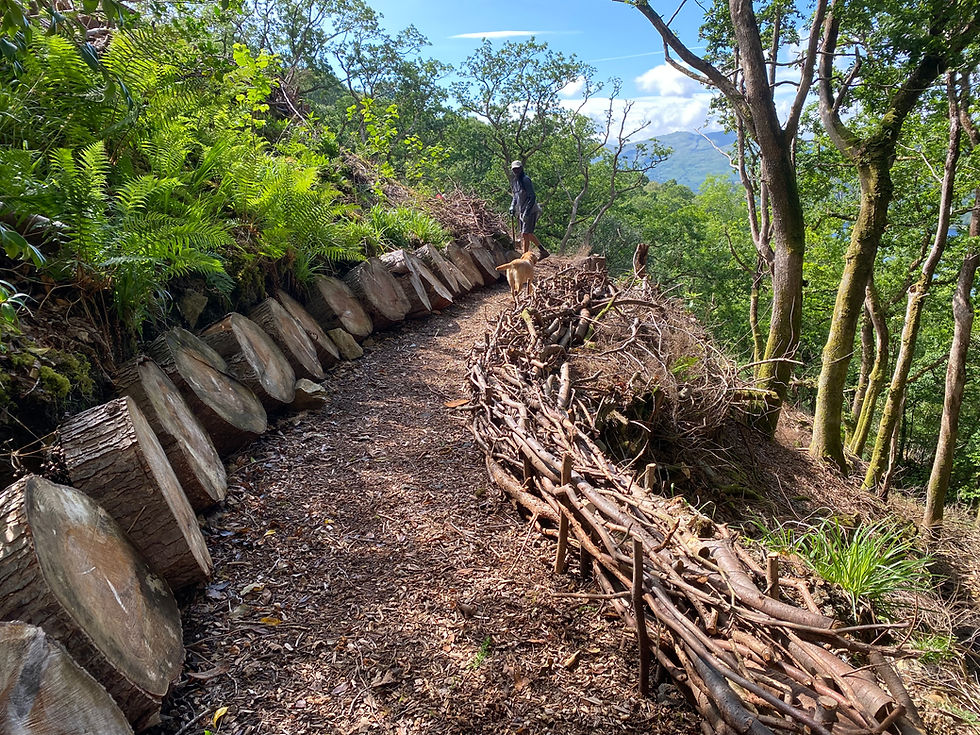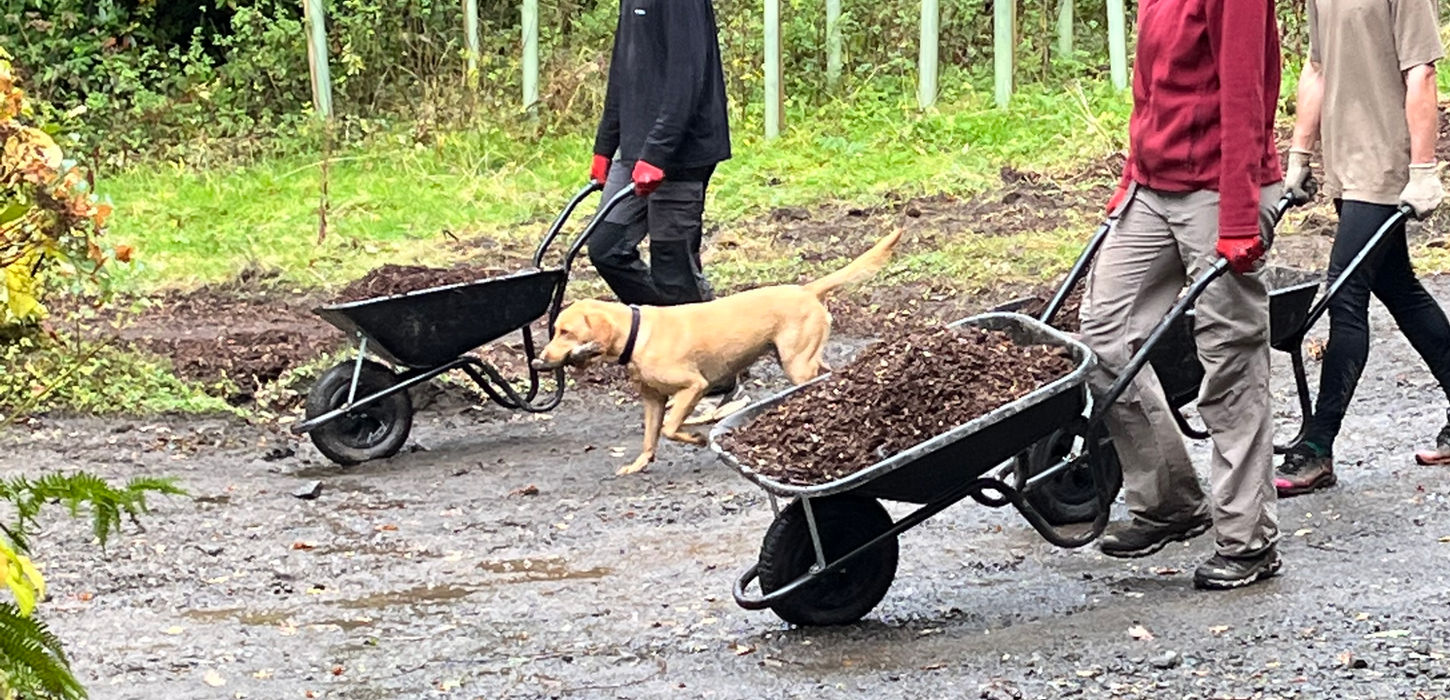Our Testimonials


Working on the property feels like becoming part of a larger project to which you would like to contribute and see the wonderful result at the end.
Lea
Germany - October 2024
It was nice to know that we were contributing towards something which is immeasurably valuable for nature now and in the future.
Danielle
UK - April 2025
Cutting and stacking Rhododendron (a pesty invasive species) was that much more motivating having a clear sense of the overarching vision.
Shaye
Canada - January 2025









Rewilding at Re-Inversnaid
At Inversnaid, our rewilding philosophy invites guests to connect with nature through wild but considered encounters—often muddy, always meaningful. These experiences offer a direct, immersive link to the natural world, something many of us lose in urban environments.
In an era of increasing disconnection from nature, it’s crucial to remember that humans are just one small part of a vast, interconnected ecosystem. For this ecosystem to thrive, all its elements must work in harmony with each other, not in opposition.




What is Rewilding?
Rewilding is a holistic land management approach that addresses critical environmental challenges such as biodiversity loss and climate change. Each landscape is unique, and its rewilding strategy should reflect that.
At Inversnaid, we focus on what we can control across our 50-acre property, aiming to make a real impact through knowledge sharing and sustainable practices. While preserving existing habitats, we are also actively restoring the land through carefully planned interventions to catalyse the rewilding process.



Our Rewilding Objectives
Our approach to rewilding focuses on allowing nature to heal and regenerate on its own. By removing the artificial exotic competition introduced by our Victorian ancestors, we create the ideal conditions for ecosystems to recover and thrive naturally.

Share Our Progress
Since acquiring the property in 2021, we’ve seen significant changes in the landscape, both on the hill and within our garden. We're committed to monitoring these transformations and sharing our findings with the wider community, showing the positive impact of rewilding first-hand.

Create New Habitats
In 2025, we began removing dead stands of rhododendrons and repurposing the material to create dead hedging terraces. We’re experimenting to see the impact of different practices: some will be planted, while others will regenerate naturally, providing new habitats and supporting native biodiversity.

Refine our Approach
We initially left dead material from stem-injected invasives, hoping it would aid oak and birch regeneration. Instead, it favoured exotic species, which outcompeted the natives. With feedback from the land, advice from experts and input from our international volunteers, we're always refining our approach.

"What would the world be, once bereft
Of wet and wildness? Let them be left,
O let them be left, wildness and wet;
Long live the weeds and the wilderness yet"
Gerard Manley Hopkins.
(1844-1889)
Our Rewilding Efforts
Our removal of invasive species is creating space for native species such as Oak, Birch, Rowan, and Holly to regenerate naturally and we're accelerating this process with additional planting where appropriate. We’re also raising funds to expand these initiatives, enhancing our biodiversity further by creating new ponds and wetland areas which contribute to a healthier environment and ecosystem.
The impact of our work to date has been significant. Come and see the progress for yourself.

Removal of invasive species
The removal of invasive species that cast heavy shade such as Rhododendron Ponticum and Western Hemlock has opened up the spaces allowing in natural light helping native species to regenerate.

Removal of livestock & cattle
While livestock can play a significant role in rewilding on larger properties, we’ve opted to remove cattle from the hill at Inversnaid due to our small-scale operation.

Successful signs of regeneration
The decision to remove cattle has led to a remarkable increase in natural regeneration of native species over the past three years. Pioneer species such as Birch and Rowan have been really successful on the hill.
Mud, Sweat & Smiles ......
Celebrating Our Global Volunteers
Dive into our photo gallery, showcasing the hard work and infectious energy of international volunteers from over 16 countries who’ve spent the past year transforming our land. A key focus of their efforts? The removal of invasive rhododendrons, a critical step in restoring native habitats and boosting biodiversity. From muddy boots to beaming smiles, these future leaders are bringing passion and fun to every task, while making a lasting impact on the environment.
Explore the gallery to see how they’re shaping a sustainable future—one rhododendron at a time!







Rewild
Rewilding landscapes and perspectives through slow, meaningful encounters with nature.



























